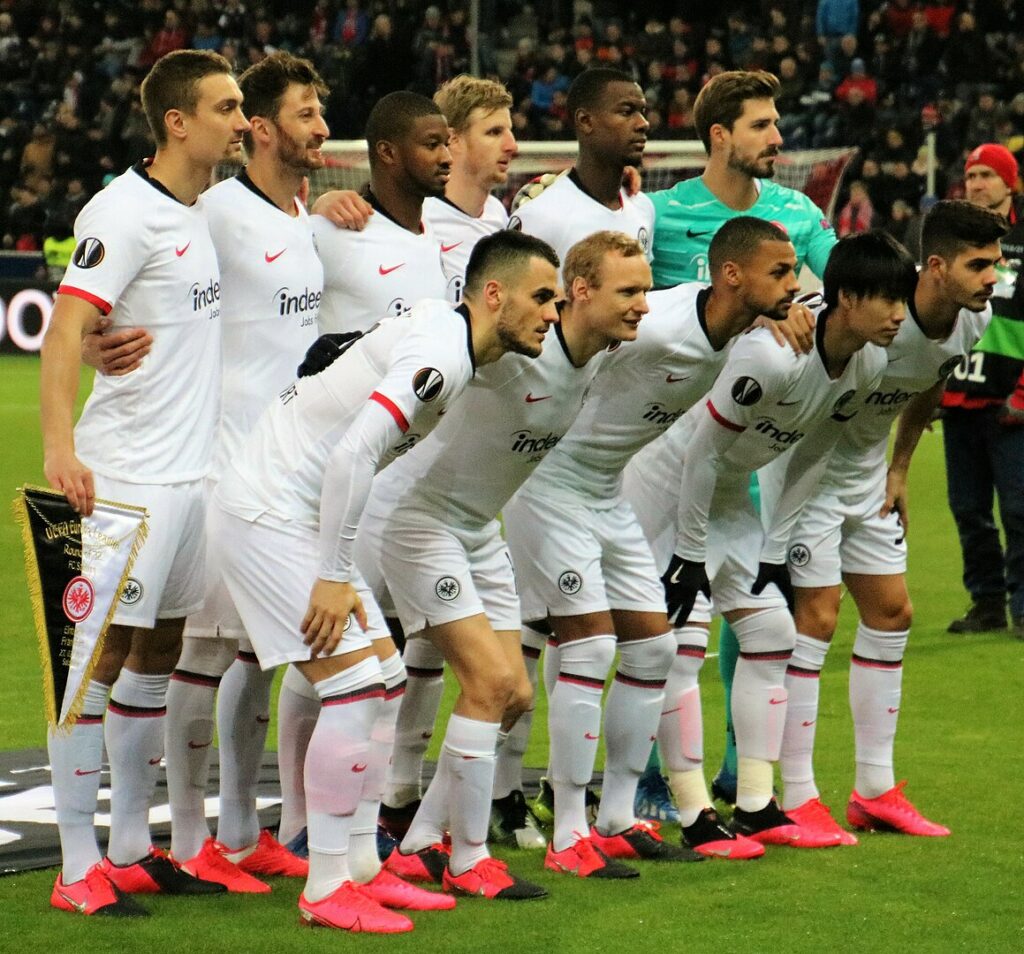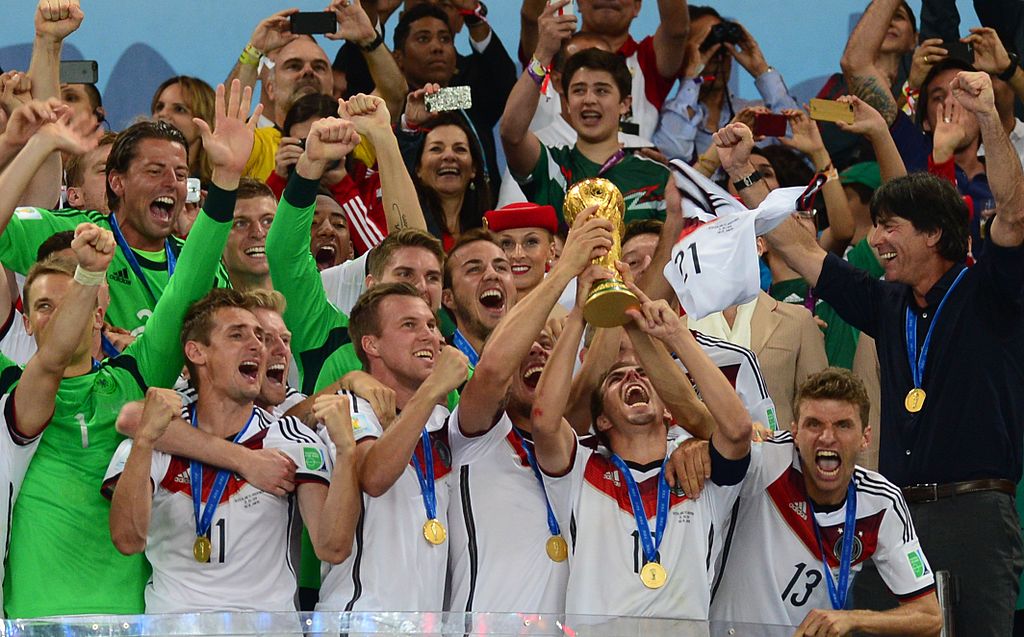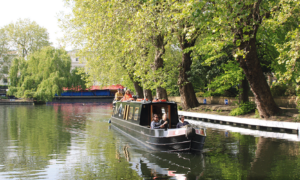While living for almost four years in the Frankfurt area, I spent a lot of time going to football games in neighborhood pubs. I also was fortunate to go to a couple of local stadiums and be in Germany in 2014, the year they won the World Cup.

FOOTBALL
During football season, typically from August to May, my friends – German and expat – and I watched Bundesliga football matches on the weekends. With no ticket to buy, it was a very flexible endeavor. We met at both our local Irish pub and at the neighborhood German one.
With good beer, cheap eats, and a place to meet old friends and new, it was a consistently fun activity.
As I wrote about in a previous post, listening to the football broadcasts was also an excellent way to improve my language skills, German in this case.
BUNDESLIGA AND GOING TO THE STADIUM
The German premier, professional league, Bundesliga is made up of 18 teams. The Frankfurt area has two, Eintracht Frankfurt and FSV Mainz 05. I went to three games in person, two at Mainz 05 and one at Eintracht Frankfurt.
As it turns out, the Mainz fans are the best behaved in the league, which may be why I had two positive experiences compared to some people I know in other countries, but I also went with people who picked the games we were going to. The game I went to in Frankfurt (vs. Cologne) was completely insane but wonderful. More on that in a minute.

STANDING SEATS
For the Mainz 05 games, we purchased the cheaper standing seats, which were really a cement ledge that you could also sit on. We took a shuttle bus from Mainz’s Main Train Station (Hauptbahnhof) along with hundreds of other fans because the stadium was outside the city center.
Transportation was very well organized. Everyone was sporting red and white, the team’s colors. The cool thing about one of the games was that it was “friendly,” and the coach of the opposing team, who had moved on to coach for a team in Britain, was a local hero.
Upon his return for the match, the entire stadium gave him a standing ovation.
REAL SEATS
When Frankfurt was playing against Cologne (FC Köln), the only tickets we could get were in the Cologne section, but they were proper seats. When we got to the game, we instinctively knew we had to keep a very low profile – I have never seen such a passionate crowd with fans on both sides waving their team flags the entire time. It was a high-scoring game – Frankfurt was beating Cologne badly –and we only looked at each other when Frankfurt, who we were rooting for, scored.
We had a long walk to and from the train station to the stadium, which just meant we got to witness the revelers drinking beer along the way, and lots of fans (male) taking a piss outside (lucky them), which in recent years has been frowned on.
EUROPEAN FOOTBALL LEAGUE, EURO CUP 2024, WORLD CUP 2026
In addition to the regular football season in Europe, there is the European Champions League which is held every year, the biennial European Nations League, which is held on odd years, and the quadrennial Euro Cup (in 2024) and World Cup (in 2026), alternating on even years.
Germany is hosting the Euro Cup in the summer of 2024, which will be held in 10 cities throughout the country (UEFA EURO 2024), so get ready for a fantastic time. Qualifying is from March to November 2023. (The World Cup is in 2026, with qualifying matches starting in March 2025.)
When the Euro Cup and World Cup are going on, you can often view the games inside or outside pubs or restaurants, which show them on big screens, fostering a great sense of community, and, of course, penalty kicks are so nerve-racking.

TIPS FOR GOING TO FOOTBALL MATCHES IN PERSON IN EUROPE
· Wear (home team or) neutral colors.
· Don’t interact with people you don’t know.
· Focus on the game. You are not there to socialize!
· Keep your eyes open and move away from unruly people.
· If you are not sitting in your team’s section, zip it. In other words, don’t cheer for a team if you are not sitting in that team’s section.
· Leave right after the game to avoid hooligans and drunkards.
· Remember, this is an impassioned sport.
HAVE FUN BUT BE PRUDENT
I enjoyed seeing football matches week after week in neighborhood pubs, and I was glad to have experienced going to a few games in person. On the other hand, if you notice a big police presence or lots of police vehicles like I did one day, you may not want to venture out. This visiting team’s fans were known for riotous behavior.
However, whether you are living in, visiting, or just passing through, watching football in Germany, Europe, or anywhere, is a fun and exciting way to spend your time.
TEAMS TO AVOID
A number of teams have reputations for hooliganism.
They include:
• FC Barcelona, whose fans have a reputation for throwing things at rivals including cellphones and pigs head.
• Feyenoord Rotterdam has the reputation for being the worst hooligans in the Netherlands and police presences are increased when they visit rivals such as Ajax and PSV.
• Birmingham City and Leeds United had a riot in 1985 that left 500 people injured and one dead. The Zulu Warriors of Birmingham City are particularly notorious for attacking rival teams and instigated the 1985 riot.
• Roma fans has a history of stabbing rivals.
• Dynamo Dresden is the only German club on the list with a history of violence, but nothing like some of the other teams.
• Millwall Bushwackers are, by all accounts, the most notorious fans in England, with their origins as rumble-tumble London dockworkers.
For a detailed explanation of how European football works, check out this guide for Americans.
Mary Porcella is a Europhile who has lived in Germany, Norway, Italy, and the U.S. She is a writer, editor, and photographer. She loves seeing new places, returning to old haunts, and meeting up with family and friends. As of today, her travels have taken her to 20 European countries, and she hopes to visit the rest.















